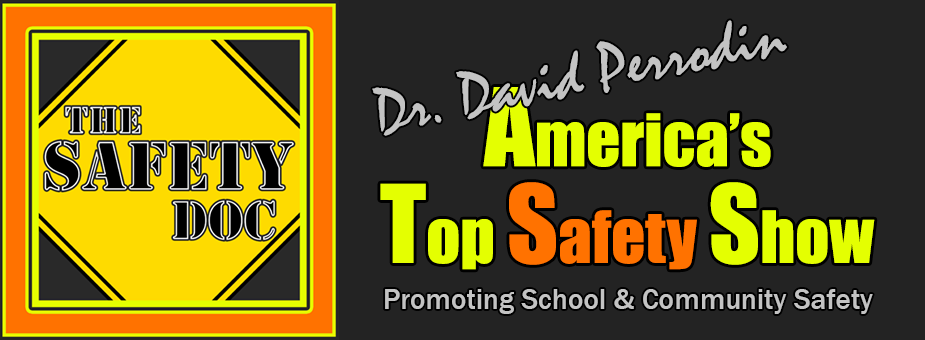Untold Stories From Former Soviet Cyclist Nikolai Razouvaev | SAFETY DOC PODCAST #144
[Podcast] Nikolai Razouvaev was part of the Soviet national team between 1984 and 1990. He won a gold medal in a team time trial at the UCI junior world championships in 1984. Nikolai was cycling in Kiev just days following the April 26, 1986, Chernobyl nuclear plant disaster. Kiev, with a population of 2 million, is 100 km (62 miles) from Chernobyl. Nikolai recently returned to road racing in Australia, where he also coaches other cyclists. He works with a company involved with clinical trials for persons experiencing depression or cognitive decline. Nikolai is the author of The Renegade: A Memoir of a Soviet Cyclist. Read the full blog post for episode #144 at safetyphd.com.
DIRECT LINK to MP3 of this Episode: https://tinyurl.com/SDP144-AUDIO
CYCLING NEAR CHERNOBYL – WHAT NIKOLAI SAW AND HEARD
The Peace Race, dating back to 1948 and known as the “Tour de France of the East”, was a prestigious cycling event attended not only by communist bloc states but also guest cyclists from the West. It was on a high sporting level but it also played an important political and ideological role. Its traditional participants were from Czechoslovakia, Poland and East Germany. In 1986 the Soviet Union joined in and it was decided the race should start from Kiev. Cyclists from the West immediately returned home when informed about the Chernobyl accident. Only 64 cyclists entered the race; less than half of the usual number.
LEAD COVERED BUSES
Nikolai saw hundreds of evacuation buses covered with lead sheets, similar to plywood, just outside of Kiev. A driver had tipped him off to the Chernobyl accident just 62 miles away. More information came in over the airwaves from radio stations in Germany – despite the Soviet government jamming foreign radio frequencies. Nikolai recalled other foreboding signs in Kiev, such as near-empty streets during the race and a routine of large water trucks and workers washing radiation from the pavement.
RED WINE AND ALL IS FINE
Red wine, vodka and other alcohol were difficult to find in Kiev. Popular belief was that alcohol protected the body from radiation. “Weird times,” per Nikolai.
HOW TO GET TRUTHFUL INFORMATION IN THE 1980s SOVIET UNION
Nikolai explained that by the 1980s, most people living in Russia dismissed the constant stream of state-run media and propaganda. Surprisingly, people placed much trust into the accuracy of rumors and Nikolai shared that people would discuss rumors, but there wasn’t a practice, or need, to verify rumors.
INFORMATION DURING PERESTROIKA AND GLASNOST
The 1980s policies of perestroika and glasnost changed the perspective of the citizens of the Soviet Union. As perestroika focused on reviving the economy and empowering it, glasnost focused on openness. It is during openness that most weaknesses of communism and end of the Soviet Union were brought across. Nikolai noted that this explosion of new information was more overwhelming than the Chernobyl accident.
HOW DID SAMIZDAT DESTROY THE SOVIET UNION?
Samizdat (self-publishing) was a form of dissident activity across the Eastern Bloc in which individuals reproduced censored and underground makeshift publications, often by hand, and passed the documents from reader to reader. “A strange world of lies.” Nikolai noted that in the later 1980s, a flurry of small independent newspapers could be legally produced and sold in Russia. They were very expensive, costing twenty times the price of a state newspaper. For that reason, a single copy was often shared with many people. Although some of these new publications were disguised propaganda, most were suppressed truths that aligned to documents kept in “libraries” and other government archives that were not open to the public.
CRAZY STORIES FROM NIKOLAI’S YOUTH
Go ahead and jump to the final 20 minutes of the show! Nikolai shares two jaw-dropping stories. One involves a bag packed with BIG money dropped at his feet and the other involves a thug pressing a gun to his head and telling him to make right with his maker.
INTERNET SEARCHES SOAR FOR DEPRESSION REMEDIES
Nikolai works in the marketing department for a company that conducts clinical trials for depression and Alzheimer’s treatments. He’s observed a sharp increase in people searching for variants of depression therapy and noted that his company is inundated with people requesting to participate in trials for depression treatments. He attributes this behavior to the pandemic.
This is episode #144 of The Safety Doc Podcast
FOLLOW
- Watch this episode on “The Safety Doc” YouTube channel https://tinyurl.com/SDP144-VIDEO
- Listen to this episode on PodBean MP3 https://tinyurl.com/SDP144-AUDIO
- Apple Podcasts http://tinyurl.com/SafetyDocApplePodcasts
- The 405 Media http://the405media.com/the-safety-doc/
- SAFETY DOC WEBSITE & BLOG safetyphd.com
- Follow David & The Safety Doc Podcast on Twitter @SafetyPhD
- Email Dr. Perrodin thesafetydoc@gmail.com
Nikolai Razouvaev’s website: https://nikolai.substack.com/
Purchase Dr. Perrodin’s book: Schools of Errors – Rethinking School Safety in America


